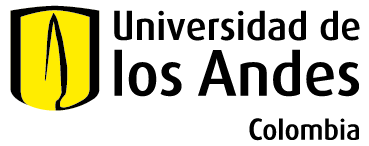Microbial Ecology in Latin America
Chile
The Chilean Microbiology Society (http://www.somich.cl/) brings together the main researchers in Microbial Ecology in this country. In the last 30 years, researchers have been interested in topics such as chloroaromatic biodegradation and bioremediation, copper bioleaching, soil microbiology, marine microbiology, harmful marine, and freshwater algal blooms, with an emphasis on microbial ecology. Chile is a country of contrasts in terms of extreme environments, having the driest desert in the world in the north of the country, to the rain forest in the south, Antarctica, and hot springs become a reference for ecological studies of extreme microorganisms. However, the search for new microorganisms and products of pharmaceutical relevance to industry is an incipient field. Research collaborations are carried out mainly with the USA, Germany, France, Spain, Sweden, Belgium, and the Netherlands, with the University of Chile and the Catholic University of Chile being the benchmarks in microbiology in the country. In the future, the most important challenge for microbial ecology research in Chile will be environmental issues. Mónica Vásquez PhD
Chile
Colombia
In Colombia, microbial ecology was brought to the forefront with the work done by the Colombian Center for Genomics and Bioinformatics of Extreme Environments (GeBix) from 2008 to 2014. This center functioned as a research network led by the Corporacón Corpogen, and was made of 14 research groups in 7 institutions in the country (Universidad Nacional de Colombia - Bogotá headquarters, Universidad del Cauca, Universidad del Valle, Universidad de Caldas, Pontificia Universidad Javeriana - Bogotá, Corporación Corpogen and ParqueSoft). GeBix carried out work in metagenomics and bioinformatics of extreme environments and microbial bioprospecting to strengthen research in omics sciences and add value to our biodiversity. The work focused on microbial and metagenomic diversity of ecosystems in Los Nevados National Natural Park, bioprospecting of isolated microorganisms or using metagenomic libraries or metagenomic data, microbial ecology studies, and development of workflows for bioinformatics analysis and new strategies for data analysis. The Center also worked on legal aspects and intellectual property, to comply with current regulations and propose work schemes related to the interests of the participating researchers. Currently, interest in microbial ecology is growing thanks to talented new scientists working on topics related to biotechnology, computational biology, agriculture, and environmental microbiology, among others. María Mercedes Zambrano PhD
Uruguay
Interest in microbiology and biological sciences is the common denominator of researchers in the Uruguayan Society of Microbiology (www.sumuy.org.uy). Initially, microbiology activities in Uruguay were related to clinical aspects, but in the last 10 years, microbial ecology has been growing along with agricultural sciences, since Uruguay bases its economy on livestock and agriculture. Thus, the research has focused on two main lines, the environment and agriculture. Studies involve, on the one hand, topics such as plant-promoting microorganisms, controllers, bioremediation, livestock ruminal communities in production chains, enzymes for waste degradation, and, on the other, they look at the riparian alluvial plains of the Uruguay River, the vulnerability of aquatic ecosystems with emphasis on trophic networks, climate change, carbon cycle in coastal ecosystems, diversity, and evolution of bacteria, plankton, and Cyanobacteria in Antarctica. The University of the Republic of Uruguay and the Clemente Estable Research Institute lead this type of research through collaborative networks with countries such as Brazil, Italy, and Germany. The challenge for Uruguayan microbial ecologists is to integrate all the knowledge about the interactions that take place in different biological systems, including humans. Claudia Piccini PhD
Uruguay






